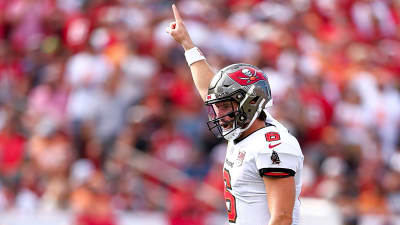- Home
- Quizzes
- My Quiz Activity
- Newsletters
- MY FAVORITES
- Add Sports/Teams
- SPORTS
-
NFL
- NFL Home
- Arizona Cardinals
- Atlanta Falcons
- Baltimore Ravens
- Buffalo Bills
- Carolina Panthers
- Chicago Bears
- Cincinnati Bengals
- Cleveland Browns
- Dallas Cowboys
- Denver Broncos
- Detroit Lions
- Green Bay Packers
- Houston Texans
- Indianapolis Colts
- Jacksonville Jaguars
- Kansas City Chiefs
- Las Vegas Raiders
- Los Angeles Chargers
- Los Angeles Rams
- Miami Dolphins
- Minnesota Vikings
- New England Patriots
- New Orleans Saints
- New York Jets
- New York Giants
- Philadelphia Eagles
- Pittsburgh Steelers
- San Francisco 49ers
- Seattle Seahawks
- Tampa Bay Buccaneers
- Tennessee Titans
- Washington Commanders
-
MLB
- MLB Home
- Athletics
- Arizona Diamondbacks
- Atlanta Braves
- Baltimore Orioles
- Boston Red Sox
- Chicago White Sox
- Chicago Cubs
- Cincinnati Reds
- Cleveland Guardians
- Colorado Rockies
- Detroit Tigers
- Houston Astros
- Kansas City Royals
- Los Angeles Angels
- Los Angeles Dodgers
- Miami Marlins
- Milwaukee Brewers
- Minnesota Twins
- New York Yankees
- New York Mets
- Philadelphia Phillies
- Pittsburgh Pirates
- San Diego Padres
- San Francisco Giants
- Seattle Mariners
- St. Louis Cardinals
- Tampa Bay Rays
- Texas Rangers
- Toronto Blue Jays
- Washington Nationals
-
NBA
- NBA Home
- Atlanta Hawks
- Boston Celtics
- Brooklyn Nets
- Charlotte Hornets
- Chicago Bulls
- Cleveland Cavaliers
- Dallas Mavericks
- Denver Nuggets
- Detroit Pistons
- Golden State Warriors
- Houston Rockets
- Indiana Pacers
- Los Angeles Clippers
- Los Angeles Lakers
- Memphis Grizzlies
- Miami Heat
- Milwaukee Bucks
- Minnesota Timberwolves
- New Orleans Pelicans
- New York Knicks
- Oklahoma City Thunder
- Orlando Magic
- Philadelphia 76ers
- Phoenix Suns
- Portland Trail Blazers
- Sacramento Kings
- San Antonio Spurs
- Toronto Raptors
- Utah Jazz
- Washington Wizards
-
NHL
- NHL Home
- Anaheim Ducks
- Boston Bruins
- Buffalo Sabres
- Calgary Flames
- Carolina Hurricanes
- Chicago Blackhawks
- Colorado Avalanche
- Columbus Blue Jackets
- Dallas Stars
- Detroit Red Wings
- Edmonton Oilers
- Florida Panthers
- Los Angeles Kings
- Minnesota Wild
- Montreal Canadiens
- Nashville Predators
- New Jersey Devils
- New York Islanders
- New York Rangers
- Ottawa Senators
- Philadelphia Flyers
- Pittsburgh Penguins
- San Jose Sharks
- Seattle Kraken
- St. Louis Blues
- Tampa Bay Lightning
- Toronto Maple Leafs
- Utah Mammoth
- Vancouver Canucks
- Vegas Golden Knights
- Washington Capitals
- Winnipeg Jets
- NCAAF
- NCAAM
- Olympics
- Boxing
- Entertainment
- Lifestyle
- Golf
- MMA
- Soccer
- Tennis
- Wrestling
- Sports Betting
- More Sports
- RESOURCES
- My Account
- YB on Facebook
- YB on Twitter
- YB on Flipboard
- Contact Us
- Privacy Policy
- Terms of Service
From Lions' John Morton to Cowboys' Klayton Adams: The five most impressive NFL coordinators in 2025
Coaching matters. And while head coaches get most of the attention, no team is complete without strong coordinators.
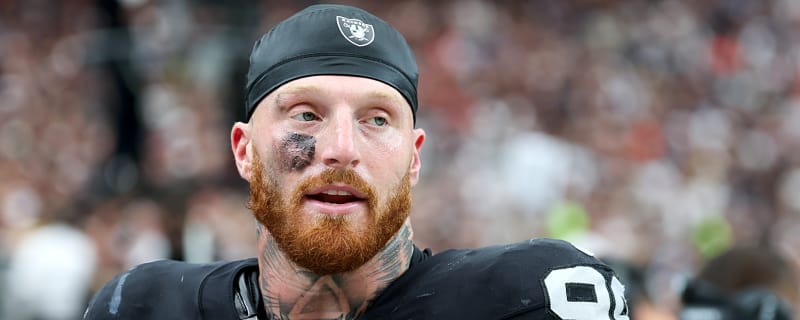
Raiders inform Maxx Crosby of their future plans for him
The Raiders are clearly one of the worst teams in the NFL so far, and that is going to make them a potential seller ahead of the trade deadline.

Steelers rookie QB Will Howard finally returning after fluke injury
It may have been a bad move to keep Will Howard on IR for as long as the Steelers did, but at least they are now prioritizing his development.

Report suggests Jets' Darren Mougey, Aaron Glenn were split on Aaron Rodgers decision
Was there dissent within the organization regarding Rodgers' future with the team?
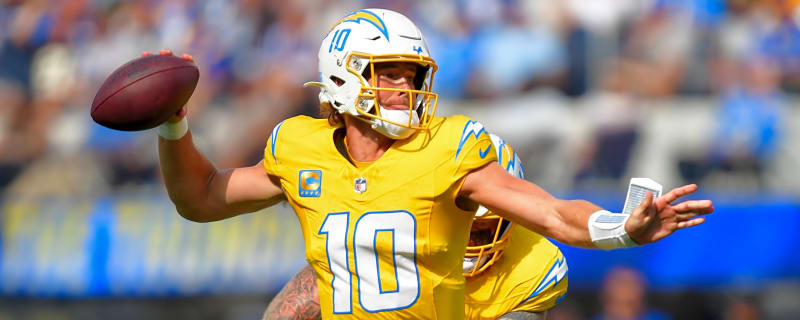
The 'Active 3-passing-TD game leaders' quiz
There are 26 active NFL quarterbacks who have thrown three touchdowns in a game at least eight times. How many of them can you name in five minutes?
Commanders dealt significant blow with Jayden Daniels ruled out for 'MNF' Chiefs showdown
Daniels' hamstring injury threatens to derail Washington's season before it had a chance to get off the tracks.
The most regrettable NFL coach firings of all time
Many teams have made missteps regarding a separation from a head coach or coordinator. Some have been straight firings, others de facto dismissals described as mutual separations.

Jets' Aaron Glenn responds to Woody Johnson's comments about Justin Fields amid QB uncertainty
On Wednesday, Aaron Glenn responded to Woody Johnson's comments, which seemed to indicate that the owner no longer wanted to see Justin Fields in the lineup.

Dolphins HC Mike McDaniel offers big update on belief in Tua Tagovailoa
Is McDaniel losing faith in his quarterback as the season spirals out of control in Miami?

Why former OL is right about Dolphins needing a reset
The Dolphins are coming off one of their worst performances of the season, losing 31-6 to the Browns, a fellow last-place team.
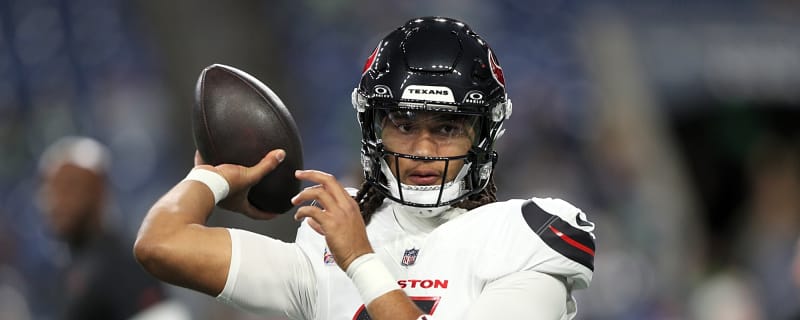
The Texans' struggles go far beyond C.J. Stroud
Just two years removed from looking like the NFL's next big contender, the Texans are going the wrong direction.
The 'NFL completion percentage record by NFL team' quiz
How many of the quarterbacks with the highest completion percentage in a single game with a minimum of 20 attempts for each NFL team can you name in five minutes?
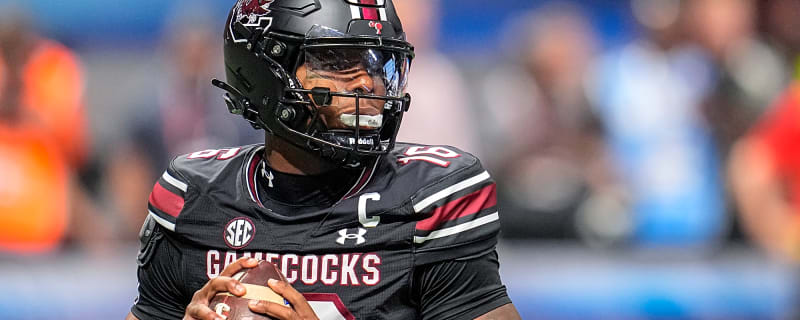
2026 first-round NFL mock draft: Three QBs in the top 10
With the month of September in the books, both the top college prospects and 2026 NFL draft order are coming into focus. Here's a look at our latest first-round NFL mock draft as of October 13, 2025.

Five reasons why Colts are real deal in AFC
At 6-1, the Colts boast the AFC's best record, but there is a lot more to like about this team than wins and losses. Here are five compelling reasons why the Colts are the class of the conference.
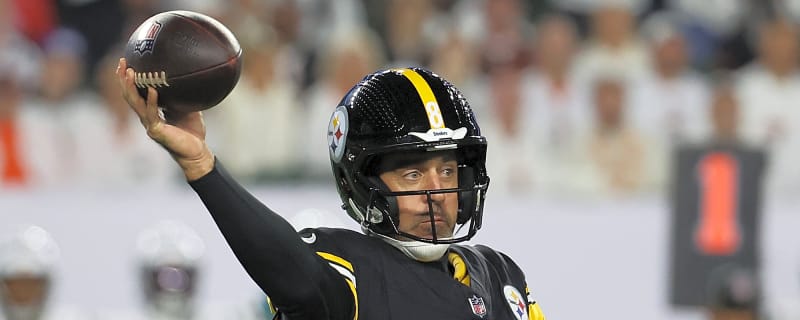
Steelers' Cameron Heyward already thinking about Aaron Rodgers' future beyond 2025
Rodgers joined the Steelers in June, and he later helped the club open the season with four wins in five games.

Cowboys reportedly 'have had internal discussions' regarding big George Pickens move
Pickens became a key figure in the Dallas offense as CeeDee Lamb missed three games due to a high ankle sprain.

Packers' Micah Parsons reflects on classy Aaron Rodgers gesture from rookie season
The Packers' game against the Steelers will be meaningful for both Aaron Rodgers and Micah Parsons.

Why Patriots have a clear path to winning AFC East
There are plenty of reasons to believe in head coach Mike Vrabel's crew.

Will Buccaneers, Baker Mayfield work out contract extension during Week 9 bye?
Will the Bucs look to lengthen Mayfield's stay in Tampa during the bye week?
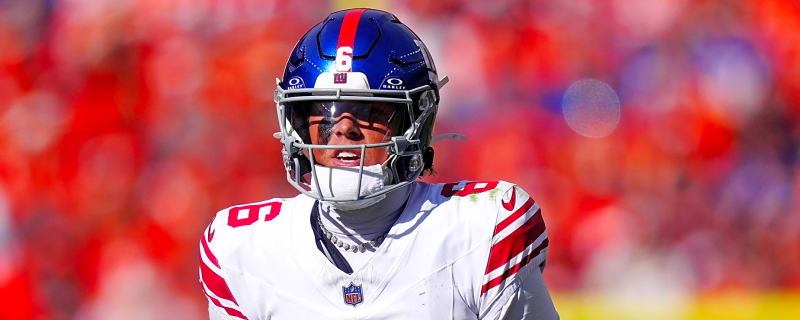
Why Giants' Jaxson Dart reminds former QB of Tom Brady
NBC Sports analyst and former NFL quarterback Chris Simms shared how watching Jaxson Dart play this fall has reminded him of a living legend.

Saints' Brandin Cooks gave Chris Olave advice amid trade rumors
Cooks knows a little bit about what teammate and fellow New Orleans wideout Chris Olave is going through amid rumors suggesting the Saints could deal Olave.
The 'Tight end receiving leaders by NFL team' quiz
How many of the tight ends with the most career receiving yards for every NFL franchise can you name in five minutes?

NFL coaches rip Jets for handling of Justin Fields before benching
Did the Jets mishandle Justin Fields?

Broncos' Nik Bonitto closes book on Giants trash talk with comments about Jaxson Dart
Members of the Denver Broncos and New York Giants engaged in a bit of trash talk ahead of the Week 7 game between the sides in Denver.

Cowboys rumored to be eyeing star pass-rusher as Micah Parsons replacement before trade deadline
The Dallas Cowboys could be looking to make amends for trading defensive end Micah Parsons to the Green Bay Packers before the start of the season.
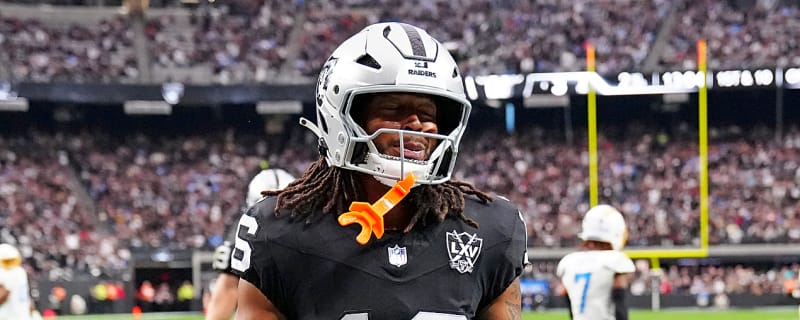
Raiders WR Jakobi Meyers offers huge update on trade desire
Before the 2025 NFL season got underway, Las Vegas Raiders wide receiver Jakobi Meyers made it known he wanted to be traded. Has anything changed through the first seven weeks of the season?
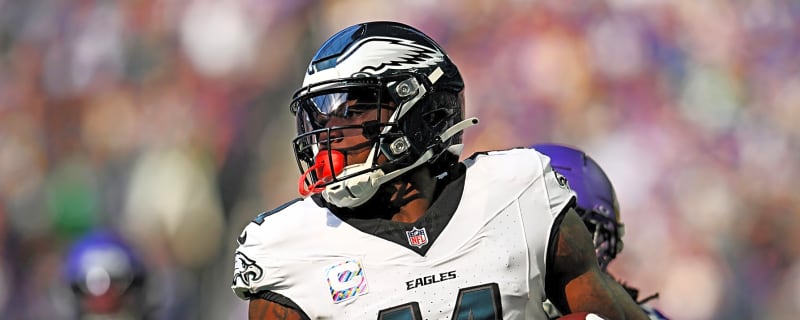
Why Eagles have reportedly made this huge A.J. Brown decision ahead of trade deadline
Speculation continues about Brown's future in Philadelphia.
Breaking News
Trending News
My Favorites
Customize Your Newsletter
 +
+
Get the latest news and rumors, customized to your favorite sports and teams. Emailed daily. Always free!
PRIVACY POLICY EDITORIAL POLICY CONTACT US
ABOUT YARDBARKER TERMS OF SERVICE
Use of this website (including any and all parts and
components) constitutes your acceptance of these
Terms of Service and Privacy Policy.
This site is for entertainment purposes only.
There is no gambling offered on this site.
Gambling Problem? Call 1-800-Gambler.

 Free Newsletters
Free Newsletters





